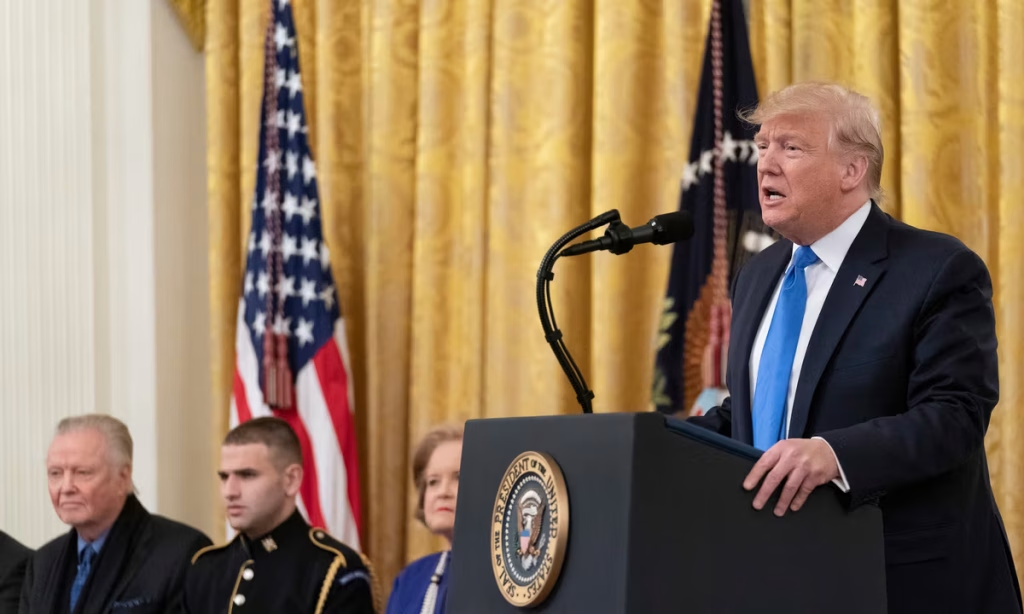While much of the US government ground to a halt on 1 October, after Congress failed to pass a funding package, President Donald Trump’s administration continued to slash the federal arts-funding system, firing most members of the National Council on the Humanities. All but four members of the council, which advises the National Endowment for the Humanities (NEH) on funding priorities, received emails on Wednesday morning informing them that they had been fired.
“On behalf of President Donald J. Trump, I am writing to inform you that your position as a member of the National Council on the Humanities is terminated, effective immediately,” wrote Mary Sprowls, who serves in the White House’s Office of Presidential Personnel. “Thank you for your service.” The Washington Post and The New York Times first reported on the firings.
The council normally has 26 members, most of them academics, who are appointed to serve for six years (terms that continue until they are replaced) and are approved by the US Senate. The NEH page for the council now lists just four members, all of whom were appointed by Trump during his first term: Russell A. Berman, Keegan F. Callanan, William English and Matthew Rose. The council is required by law to have a quorum of at least 14 members in order to conduct meetings.
As recently as this past summer, the page listed 21 members, five of whom had been appointed by Barack Obama and nine by Joe Biden. The three female council members Trump appointed in 2019—the University of Michigan Egyptology professor Marjorie Fisher, the Institute for Doctoral Studies in the Visual Arts faculty member Kathe Hicks Albrecht and the humanities education consultant Claire McCaffery Griffin—were also fired.
Griffin told The Washington Post that she was surprised by the curt tone of the termination email and disappointed that the Trump administration had not opted to “take a more nuanced approach in making decisions”. She added that she had been “really looking forward to playing a role and bringing some of the president’s vision” to fruition, notably the so-called National Garden of American Heroes, a patriotic sculpture park “that I wholeheartedly supported”.
Until the government shutdown put all NEH activities on hold, the council had been scheduled to convene for a special meeting next week to evaluate statue proposals for Trump’s sculpture garden (the agency had put out an open call for proposals in April), submit recommendations for the National Humanities Medal and review three grant applications. Spokespeople for the NEH could not be reached due to the government shutdown.
The Trump administration and the Department of Government Efficiency have slashed the staff and budgets of the NEH and the US’s other federal arts-funding agencies, the National Endowment for the Arts and the Institute of Museum and Library Services. In June, around two thirds of the NEH’s staff (around 100 workers) were laid off. Trump’s “One Big Beautiful Bill”, passed this past summer, stipulated that the NEH contribute $40m towards the construction of the National Garden of American Heroes. No site has been selected for that project, which Trump hopes will feature 250 statues of a range of historical figures and celebrities. (The NEH’s funding, which is governed by federal appropriations determined by Congress, was $207m for fiscal year 2024.)
